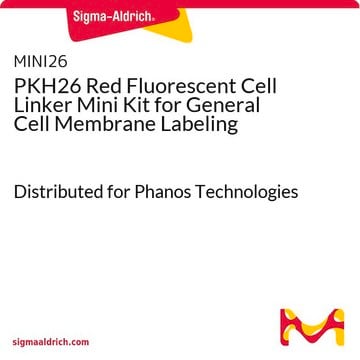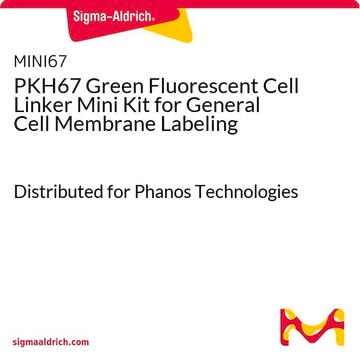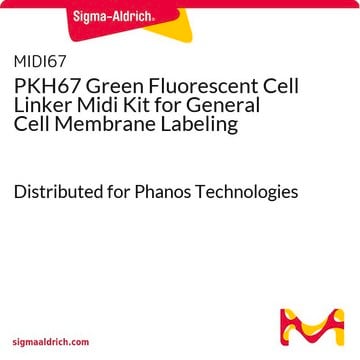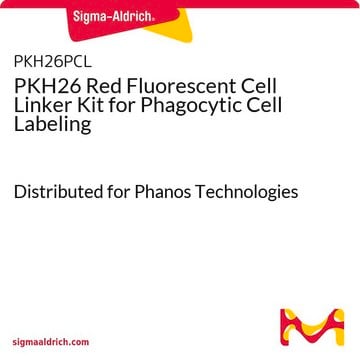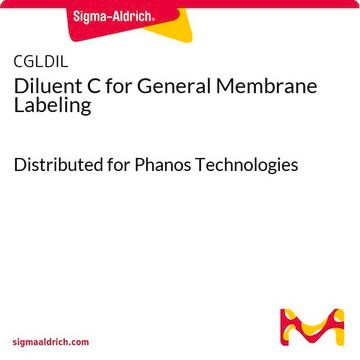PKH26GL
PKH26 Red Fluorescent Cell Linker Kit for General Cell Membrane Labeling
Distributed for Phanos Technologies
Synonym(s):
Red PKH membrane dye
About This Item
Recommended Products
packaging
pkg of 1 kit
Quality Level
manufacturer/tradename
Distributed for Phanos Technologies
storage condition
protect from light
fluorescence
λex 551 nm; λem 567 nm (PKH26 dye)
detection method
fluorometric
shipped in
ambient
storage temp.
room temp
General description
Application
Linkage
Legal Information
Kit Components Only
- Diluent C 6 x 10
- PKH26 Cell Linker in ethanol .5 mL
related product
Signal Word
Danger
Hazard Statements
Precautionary Statements
Hazard Classifications
Eye Irrit. 2 - Flam. Liq. 2
Storage Class Code
3 - Flammable liquids
WGK
WGK 1
Flash Point(F)
57.2 °F - closed cup
Flash Point(C)
14.0 °C - closed cup
Certificates of Analysis (COA)
Search for Certificates of Analysis (COA) by entering the products Lot/Batch Number. Lot and Batch Numbers can be found on a product’s label following the words ‘Lot’ or ‘Batch’.
Already Own This Product?
Find documentation for the products that you have recently purchased in the Document Library.
Customers Also Viewed
Articles
PKH dyes are easy to use and achieve stable, uniform, and reproducible fluorescent labeling of live cells. PKH dyes are non-toxic membrane stains which produce high signal to noise ratio.
PKH dyes are easy to use and achieve stable, uniform, and reproducible fluorescent labeling of live cells. PKH dyes are non-toxic membrane stains which produce high signal to noise ratio.
PKH dyes are easy to use and achieve stable, uniform, and reproducible fluorescent labeling of live cells. PKH dyes are non-toxic membrane stains which produce high signal to noise ratio.
PKH dyes are easy to use and achieve stable, uniform, and reproducible fluorescent labeling of live cells. PKH dyes are non-toxic membrane stains which produce high signal to noise ratio.
Our team of scientists has experience in all areas of research including Life Science, Material Science, Chemical Synthesis, Chromatography, Analytical and many others.
Contact Technical Service